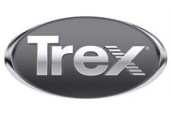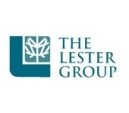Letters to the Editor
SFI Inc. wholeheartedly agrees that there should be no “fight” over certification programs in LEED and that is the very goal of our campaign–to recognize that only 10% of forests are certified to any standard worldwide, and thus LEED should recognize all credible forest certification standards used in North America including SFI, ATFS, CSA, FSC and PEFC. We understand that negative positioning by a certification program or stakeholders reflects poorly on all of us and that is why we encourage the adoption of inclusive policies.
The fact is whether you are supporting SFI, FSC or any other independent and credible certification program in North America, you are supporting a program that has strong measures in place to promote responsible forestry, including protections for biodiversity, water quality and endangered species, and ensure sustainable harvest levels, protect civil rights.
Specifically, Objective 4 of the SFI 2010-2014 Standard requires companies to manage forests in ways to protect and promote biological diversity, wildlife habitat, and endangered species and communities, and Objective 6 requires protection of special sites. The Standard also has requirements to respect indigenous peoples rights, worker health and safety and other social concerns in Objectives 14 and 18. All told, the SFI 2010-2014 Standard, which was launched in January 2010 after an extensive 18 month public review, has 20 objectives, 39 performance measures, and 114 indicators.
At SFI, we’re working hard to ensure the whole marketplace–not just LEED users–understand the depth of our fully independent program, the rigor of our new Standard, and the extent to which SFI is in fact recognized and supported by groups, companies and governments around the world. We strongly believe that all there are many more stakeholders in the LEED process beyond the USGBC membership. For example, those government representatives and officials working in or responsible for the 30% of LEED certified buildings are government-owned or occupied. Our petition and the letters from state governors and others, give a voice to those people and communities that are ultimately affected by the outcome of the process, but who will not have a vote.
Kathy Abusow
President & CEO
Sustainable Forestry Initiative Inc.
+++
We are a large independent lumber company serving eastern Pennsylvania. We also carry our FSC and SFI CoC certifications. I spend a lot of time networking and participating in green building forums and committees in our region. I feel I enjoy exposure to a breadth of opinions and insights on this issue, and I would like to share an overview of my thoughts.
USGBC is not necessarily murky in the way they vote, but the building materials supply chain and to some extent the builder, are largely left out of the voting, with no place to participate. USGBC’s membership costs for suppliers are prohibitive, instead favoring governmental bodies, design professionals, and very, very large corporations. Regional builders and building materials suppliers cannot afford the cost of membership. I participate and pay dues as an individual at my local chapter, Delaware Valley Green Building Council; but that means I am a non-voting member. This battle is about market; plain and simple. Both sides are missing the point, though; FSC should acknowledge that inclusion of SFI may well increase the number of jobs that specify a Certified Wood component in their certification efforts. But SFI must also address their perceived credibility deficiency with regards to the design and sustainability community. To sustainability professionals, SFI seems to miss the mark on key issues, such as social justice and biodiversity. Both sides also need to realize that the fight is leaving a sour taste in the mouths of those consuming their products. Yuck.
T.C. Feick
Sales and Estimating, Green and Sustainable Building Coordinator
Shelly Enterprises, Perkasie, Pa.
+++
It’s clear SFI and the others should push for legislation to address the issue. The voting system of USGBC makes obvious that its leaders want to be able to reward FSC for having a political philosophy that most closely matches its own. I made the decision not to renew FSC certification for my company because it became clear to me that FSC is more about a political agenda than an economic or green agenda.
John Gligor Jr.
Concord Truss Co.
Woodbury Heights, N.J.
+++
To add your comments, e-mail cwebb@hanleywood.com.


